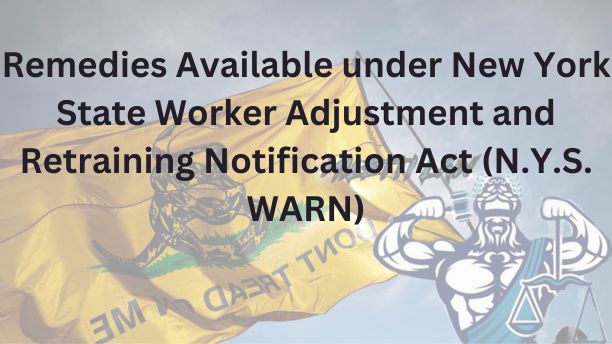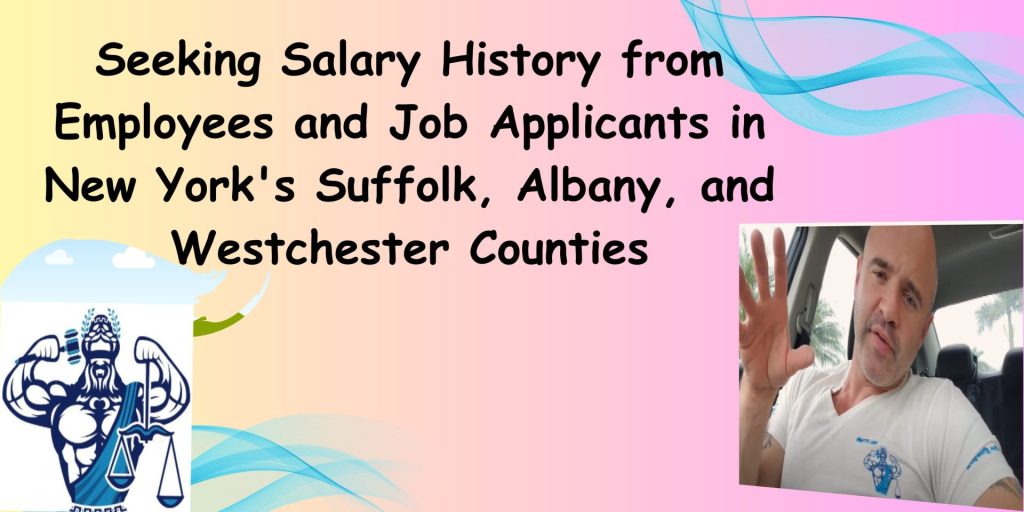Are you looking for legal representation? How much do you value your time and hard-earned money? Then look no further because whenever you require legal representation, the Law Offices of Vincent Miletti, Esq., the Strongest Name in Law, got your six. We are the authoritative force in Employment & Labor Law, providing diverse legal services in both a traditional and online, web-based environment, whether it be for small or large-scale businesses on a panel or a case-by-case basis. Hitherto, serving as primary counsel or cumis counsel, we are not only taking over the industry when it comes to Employment Defense and Employment Practices, but also in Intellectual Property Defense (Trademark, Copyright, and Proprietary Information), Management Side Defense, Regulatory and Compliance, Business Law & Corporate Law, and Professional Liability, among others. Whether serving directly or on behalf of a third party (EPLI, D&O, E&O), we stay unusually motivated® to take on all your needs!
You can agree with us that, at times, getting the right legal representation and finding a good attorney feels like trying to catch a fish while running away from a twenty-foot high tide, especially when time and money are of the essence and the pressure of getting results before you move too far down the rabbit hole is building up. Certainly, only when you desperately need reliable legal representation, probably not from the types of Saul Goodman, will you understand the importance of having the right attorney by your side. So, do you need an attorney with the skills and legal expertise that match your needs? Operating in Brooklyn, New York, the larger New York City, and New York State, as well as in the firm’s new office located in Astoria Queens, your life-changing encounter with Vinny Miletti Esq., the founder and owner of Miletti Law®, whose legal expertise, knowledge, and experience has grown immensely over time since the firm first opened its doors is just an email and/or a call.
Still, in addition to providing legal services, you can concur with us that information is power, and, as such, we have diligently committed ourselves to creating a range of authoritative, trustworthy, and engaging content available on our website and social media platforms. In this regard, feel free to visit and follow us on Facebook, Instagram, Twitter, Yelp, and LinkedIn via the website, as well as subscribe to our Blog, YouTube Channel, and News Letter through https://milettilaw.com/blog and https://www.youtube.com/@MilettiLaw, and https://milettilaw.com/#7665b240-0790-4562-ac0f-9444f9f5165a, respectively, to enjoy such content aimed to keep our unusually motivated® readers informed about how diverse legal issues affect them and/or their businesses.
In this regard, this is the last blog of our series, “Key Workplace Policies and Employee Handbooks.” In Part XI, we reviewed key issues for employers when it comes to employee privacy and company devices in the workplace and highlighted several things. For instance, pursuant to N.Y. Penal Law §§ 250.00, 250.05, employers in New York are prohibited from recording confidential conversations, mechanically eavesdropping on an employee, or accessing or intercepting electronic communications of employees. We also added that, however, N.Y. Penal Law 250.00 provides exceptions, especially when another party or the employee has consented to the communication or when the employer is a party to the same. Another thing we noted is that as codified under N.Y. Lab. Law § 203-c, employers are prohibited from videotaping employees in places designated for the purposes of changing, locker rooms, or restrooms.
Moving on with the discussion, this blog is titled “Policies Concerning the Use of Independent Contractors” and is a review of key considerations for start-ups and growing businesses or companies in New York when it comes to the use of independent contractors in lieu of employees.
Policies Concerning the Use of Independent Contractors
With a primary goal of offering services to the general public, independent contractors conduct business on their own. Normally, they are free from control, direction, and supervision from the employer while conducting their business. On the contrary, employees are subject to their employers’ control, direction, and supervision. Generally, in order to determine whether an individual is an independent contractor or employee, an agency or court in New York will consider (1) the nature of services provided by the individual and (2) the manner in which such services are provided.
However, an employer’s degree of control, direction, and supervision over an individual providing services significantly influences the distinction between employees and independent contractors. While varying standards are applied under varying laws, a government agency or court’s view concerning a relationship is not influenced by how parties (employers and independent contractors or employees) define the relationship. Importantly, it is critical for employers to be aware that irrespective of the applicable law, gig workers (independent contractors) are entitled to protections under the NYSHRL (New York State Human Rights Law), NYCHRL (New York City Human Rights Law), and FIFA (Freelance Isn’t Free Act) of the New York City just like employees do, as mentioned in our blog titled “Independent Contractors Protected Like Employees in NYC” and accessible through https://milettilaw.com/blog/f/independent-contractors-protected-like-employees-in-nyc.
As we also noted in the blog, it is crucial to understand that for the purposes of definition under New York law, an independent contractor is considered to be an individual who is realistically not an employee but a natural person working in furtherance of an employer’s business enterprise as a freelance worker. We also mentioned that, however, independent contractors are also treated almost very similarly to a typical employee.
Employers should also be aware that employer obligations, tort liability issues, and tax matters are often implicated by whether independent contractors are used in lieu of employees. Further, employers should be very cautious because an employer-employee relationship may exist irrespective of how the relationship is characterized by the supposed independent contractor and the employer, which implies that the relationship should indeed be an employer-independent contractor relationship whenever an employer uses the services of an independent contractor.
In another blog titled “Independent Contractors and the Gig Economy under NYC Labor Law” and accessible through https://milettilaw.com/blog/f/independent-contractors-and-the-gig-economy-under-nyc-labor-law, we noted that in a directive that became effective on January 11, 2020, the NYCHRL was amended to include the provision that gig workers and freelancers are covered and entitled to similar protections as employees under the law. We added that these workers are also entitled to certain provisions and protections under the NYSHRL (New York State Human Rights Law) and NYCHRL (New York City Human Rights Law). Under both laws, employers are obligated to assume liability for any acts of harassment or discrimination committed by freelancers or gig workers as long as the incident occurred in the course of the contractor’s work for the employer and the employer has actual knowledge of the discriminatory conduct.
As codified under N.Y.C. Admin. Code § 20-927, the relationship between the independent contractor and employer should be documented in a written agreement and in compliance with any applicable state law, as well as New York City’s Freelance Isn’t Free Act under which the rights freelance workers have concerning a written agreement to protection from retaliation, timely pay, and working contract are established and strengthened.
This brings us to the end of our series on the requirements of New York law when it comes to creating workplace policies and designing employee handbooks. Be on the lookout for our next blog titled “New York Law on Disability Insurance,” in which we will shift gears and introduce a new series regarding “Employer Considerations Concerning Employment-Related Insurance.”
As usual, stay tuned for more legal guidance, training, and education. In the interim, if there are any questions or comments, please let us know at the Contact Us page!
Always Rising Above the Bar,
Isaac T.,
Legal Writer, Author, and Publisher.
 314-648-2586
314-648-2586 CALL US NOW
CALL US NOW








